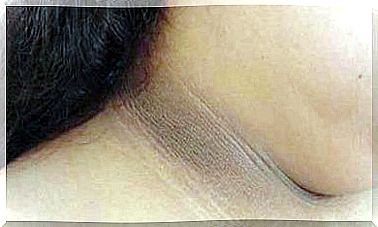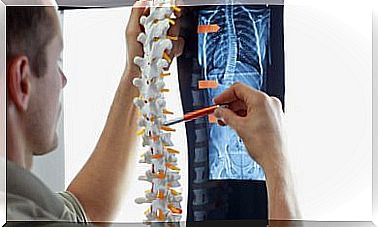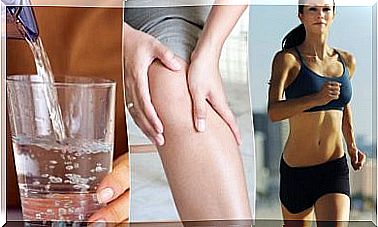What Is A Ketogenic Diet
The ketogenic diet reduces carbohydrate intake to promote fat burning. It provides us with energy, is satiating and helps us to take care of the health of the internal organs.

Losing weight is gaining health. For this reason, this premise has become the spearhead of those who bet on improving their quality of life. The ketogenic diet is among so many possible options when you are looking for a successful methodology. It is a nutritional option where the proportions of carbohydrates in the menu are considerably reduced. What is the OBJETIVE? Promote the oxidation of fat, turning the body into an efficient machine when it comes to burning it.
Parallel to this process, the formation of ketone bodies occurs that are generated when few carbohydrates and moderate amounts of proteins and good fats are ingested. Thus, ketones are used by the body as an alternative fuel when there is little sugar in the blood.
The ketogenic diet produces more energy
The ketogenic diet is great for weight loss. With this practice, insulin levels are reduced and fat becomes the main energy engine of the body. In this way, fat deposits become more vulnerable and losing weight will no longer be an impossible task.
The liver plays an important role in this process. In fact, it is responsible for transforming fat into ketone bodies, which will feed your muscles, heart and brain. With this strategy you will be more satiated, you will have less hunger and you will achieve a greater supply of energy during the day. In essence, you should eat more fat and fewer carbohydrates.
More greens and vegetables
This diet acts as a switch, as it generates many internal and external changes. Therefore, if the premise is to eat less carbohydrates, those that you are going to consume should come from vegetables.

The consumption of vegetables guarantees an adequate supply of fiber, which considerably reduces the risk of developing gastrointestinal diseases. An example is constipation, which can be fought by increasing the presence of this substance in the diet. This is stated by research published in the journal Alimentary Pharmacology & Therapeutics.
The norm indicates that a day you can only eat less than 50 grams of carbohydrates, that is, about 100 grams of bread. Therefore, flours, legumes, refined sugars, tubers and some fruits must be discarded.
The calories should be concentrated in the set of proteins and good fats, such as olive oil, nuts and avocado. Also, you can eat fish, lean meats, and chicken.
Advantages of the ketogenic diet
There are several benefits that the ketogenic diet brings to the body, so the body will thank you if you put this diet into practice.
1. You will control your appetite
This is an effect that all low carbohydrate diets generate. By increasing protein and healthy fats in the daily menu, your appetite is reduced because you are more satisfied with meals. This way, you will end up consuming fewer calories and losing weight.
2. You will lose weight more easily
The less carbohydrates, the less weight. With the ketogenic diet you can lose two or three times more weight than when you decide to consume less fat. Experts recommend this type of diet when the main objective is to reduce the body’s fat percentage.
3. You will end up with body fat
When we talk about fat, we are not only referring to the one that is reflected in the mirror, but to the fat that surrounds each organ.
It is known as visceral fat and is more dangerous than body fat, since it is one of the main factors that produces metabolic syndrome.
4. Goodbye to heart disease
With the ketogenic diet, it is able to help improve cholesterol levels, since a higher percentage of good “HDL” cholesterol is produced.
On the other hand, they lower triglyceride and blood pressure levels. In this way, the chances of suffering from cardiovascular diseases are reduced.

5. Balances insulin and fights diabetes
With this diet there is a greater control of the amount of glucose in the blood thanks to the fact that it generates greater sensitivity to insulin. Some recent studies advise the implementation of this type of diet in order to improve the management of the disease.
Disadvantages of the ketogenic diet
When it comes to starting an eating plan, it is essential to review the adverse reactions that it can generate.
While the benefits of the ketogenic diet are multiple, there are also factors to consider before putting it into practice.

1. Less vitamins and minerals
As the diet is based on fats and proteins, the low consumption of fruits and vegetables causes low levels of vitamins, minerals and fibers that can trigger, among other things, constipation.
2. Halitosis
Due to the decrease in carbohydrates in the diet and the generation of ketone bodies, bad breath occurs. In addition, it increases the feeling of tiredness and fatigue.
Diet fats
In this plan, fats play an important role. Hence the importance of knowing which ones to consume and which ones not.
It is a matter of knowing how to choose, considering that processed products always cause damage to the body.

1. Very good fats
- Fish.
- Coconut.
- Eggs.
- Omega 3.
- Nuts.
2. Good fats
- Lean meats
- Butter.
- Milk.
- Cheese.
- Olive oil.
- Pistachio.
- Avocado (avocado).
3. Bad fats
- Margarine.
- Vegetable oils.
- Sweet.
- Fried foods.
The ketogenic diet can be an alternative to improve health
In short, the ketogenic diet is one of the many options that you can consider if you are considering starting a new eating plan. There are many benefits that you will get and some disadvantages of which you should be aware.
However, always take into account the observations of a specialist. The nutritionist should be your main guide. Even if you already have this information in mind, talk with him and try to define what is best for the body.









